第60章
THE AJOUPA.
While Rodin despatched his cosmopolite correspondence, from his retreat in the Rue du Milieu des Ursins, in Paris--while the daughters of General Simon, after quitting as fugitives the White Falcon, were detained prisoners at Leipsic along with Dagobert--other scenes, deeply interesting to these different personages, were passing, almost as it were at the same moment, at the other extremity of the world, in the furthermost parts of Asia--that is to say, in the island of Java, not far from the city of Batavia, the residence of M.Joshua Van Dael, one of the correspondents of Rodin.
Java! magnificent and fatal country, where the most admirable flowers conceal hideous reptiles, where the brightest fruits contain subtle poisons, where grow splendid trees, whose very shadow is death--where the gigantic vampire bat sucks the blood of its victims whilst it prolongs their sleep, by surrounding them with a fresh and balmy air, no fan moving so rapidly as the great perfumed wings of this monster!
The month of October, 1831, draws near its close.It is noon--an hour well nigh mortal to him who encounters the fiery heat of the sun, which spreads a sheet of dazzling light over the deep blue enamel of the sky.
An ajoupa, or hut, made of cane mats, suspended from long bamboos, which are driven far into the ground, rises in the midst of the bluish shadows cast by a tuft of trees, whose glittering verdure resembles green porcelain.These quaintly formed trees, rounded into arches, pointing like spires, overspreading like parasols, are so thick in foliage, so entangled one with the other, that their dome is impenetrable to the rain.
The soil, ever marshy, notwithstanding the insupportable heat, disappears beneath an inextricable mass of creepers, ferns, and tufted reeds, of a freshness and vigor of vegetation almost incredible, reaching nearly to the top of the ajoupa, which lies hid like a nest among the grass.
Nothing can be more suffocating than the atmosphere, heavily laden with moist exhalations like the steam of hot water, and impregnated with the strongest and sharpest scents; for the cinnamon-tree, ginger-plant, stephanotis and Cape jasmine, mixed with these trees and creepers, spread around in puffs their penetrating odors.A roof, formed of large Indian fig-leaves, covers the cabin; at one end is a square opening, which serves for a window, shut in with a fine lattice-work of vegetable fibres, so as to prevent the reptiles and venomous insects from creeping into the ajoupa.The huge trunk of a dead tree, still standing, but much bent, and with its summit reaching to the roof of the ajoupa, rises from the midst of the brushwood.From every crevice in its black, rugged, mossy bark, springs a strange, almost fantastic flower; the wing of a butterfly is not of a finer tissue, of a more brilliant purple, of a more glossy black: those unknown birds we see in our dreams, have no more grotesque forms than these specimens of the orchis--winged flowers, that seem always ready to fly from their frail and leafless stalks.The long, flexible stems of the cactus, which might be taken for reptiles, encircle also this trunk, and clothe it with their bunches of silvery white, shaded inside with bright orange.These flowers emit a strong scent of vanilla.
A serpent, of a brick-red, about the thickness of a large quill, and five or six inches long, half protrudes its flat head from one of those enormous, perfumed calyces, in which it lies closely curled up.
Within the ajoupa, a young man is extended on a mat in a profound sleep.
His complexion of a clear golden yellow, gives him the appearance of a statue of pale bronze, on which a ray of sun is playing.His attitude is simple and graceful; his right arm sustains his head, a little raised and turned on one side; his ample robe of white muslin, with hanging sleeves, leaves uncovered his chest and arms worthy of the Antoinous.Marble is not more firm, more polished than his skin, the golden hue of which contracts strongly with the whiteness of his garments.Upon his broad manly chest a deep scar is visible--the mark of the musket-ball he received in defending the life of General Simon, the father of Rose and Blanche.
Suspended from his neck, he wears a medal similar to that in the possession of the two sisters.This Indian is Djalma.
His features are at once very noble and very beautiful.His hair of a blue black, parted upon his forehead, falls waving, but not curled over his shoulders; whilst his eyebrows, boldly and yet delicately defined, are of as deep a jet as the long eyelashes, that cast their shadow upon his beardless cheek.His bright, red lips are slightly apart, and he breathes uneasily; his sleep is heavy and troubled, for the heat becomes every moment more and more suffocating.
Without, the silence is profound.Not a breath of air is stirring.Yet now the tall ferns, which cover the soil, begin to move almost imperceptibly, as though their stems were shaken by the slow progress of some crawling body.From time to time, this trifling oscillation suddenly ceases, and all is again motionless.But, after several of these alternations of rustling and deep silence, a human head appears in the midst of the jungle, a little distance from the trunk of the dead tree.
The man to whom it belonged was possessed of a grim countenance, with a complexion the color of greenish bronze, long black hair bound about his temples, eyes brilliant with savage fire, and an expression remarkable for its intelligence and ferocity.Holding his breath, he remained quite still for a moment; then, advancing upon his hands and knees, pushing aside the leaves so gently, that not the slightest noise could be heard, he arrived cautiously and slowly at the trunk of the dead tree, the summit of which nearly touched the roof of the ajoupa.